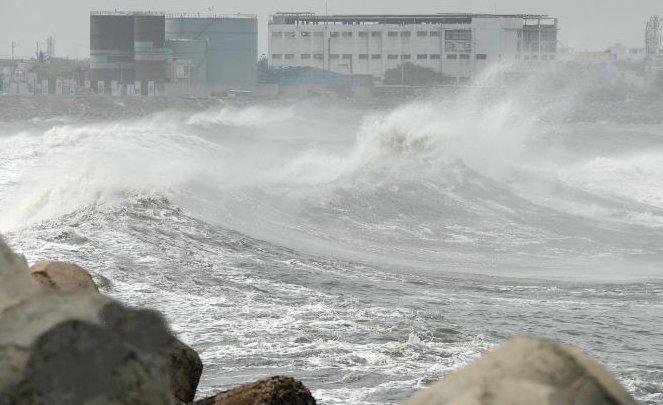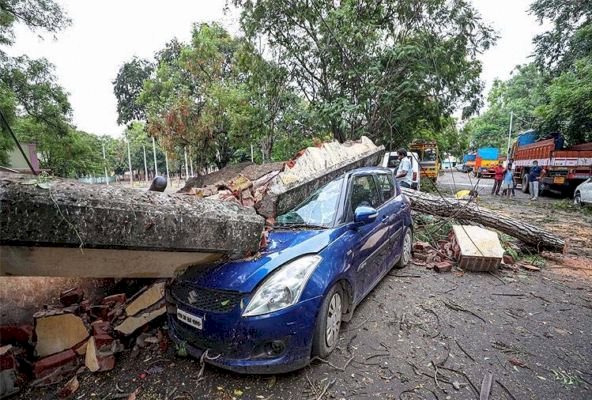Cyclone Amphan wreaks havoc in India and Bangladesh

A powerful cyclone has pounded eastern India and Bangladesh, killing at least 14 people and destroying thousands of homes, officials said, leaving authorities struggling to mount relief efforts amid a surging coronavirus outbreak.
Cyclone Amphan, the equivalent of a category 3 hurricane, was packing winds of up to 170 kilometres per hour with maximum gusts of 190kph. Authorities warned it could cause extensive damage to flimsy houses and a storm surge could push seawater 25 kilometres inland, flooding cities including Kolkata.
Millions of people fled their homes when Cyclone Amphan headed for coastal regions in a mass evacuation made even more difficult by the coronavirus pandemic.
Bangladesh has evacuated around 2.4 million people to safety. India’s West Bengal state moved nearly 300,000 and Odisha state another 148,486, officials said.
But with the storm pushing sea water as far as 17 kilometres inland and winds of up to 185km/h, it has been near-on impossible for residents to escape the threat.
By Thursday morning, at least 22 people had died as a result of Amphan. Millions were without power and it’s feared many will be left homeless.

A teenage girl and a baby are among the victims confirmed dead as “super cyclone” storms smash towns in India and Bangladesh.
While the region is often hit by cyclones at this time of year, the storm is the first super cyclone to form in the Bay of Bengal in more than 20 years.
The damage has been colossal, authorities said, as they warned of mudslides and stressed the storm was not over.
Three Bangladesh islands, where more than 50,000 people live, were inundated by a tidal surge. Back on the mainland and in India, residents hunkering down at home were under threat as winds ripped off roofs and toppled electricity poles.
The region, with 58 million people in the two bordering countries, has some of the most vulnerable communities in South Asia: poor fishing communities in the Sunderbans and over a million Rohingya refugees living in crowded camps in Cox’s Bazar in Bangladesh.
The cyclone could have devastating consequences for India’s fight against the coronavirus by impacting supply lines and crippling relief measures, said T. Sundaramanan, a health systems consultant in Pondicherry in southeast India.
The densely populated city of Kolkata, which has nearly 1,500 coronavirus cases, was likely to see flooding, while some centuries-old buildings in the northern half of the city could collapse due to the strong winds, officials warned. Ghosh, whose home in the city’s south was being lashed by heavy rain and winds, said that Kolkata had “probably never witnessed this kind of cyclone.”
The cyclone is bearing down during the Islamic holy month of Ramadan, and some Bangladeshis who fasted during the day reportedly waited until the early morning hours Wednesday before heading for the shelters.




 mode1
mode1 





































